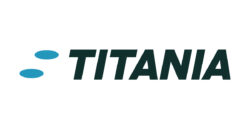On January 11, 2023, Brain+ released the findings of a study conducted by Nottingham University as part of the Alzheimer’s Detect & Prevent European Horizon2020 project, which is led by Brain+.
The purpose of the study was to examine the efficacy of Brain+’ Computerized Cognitive Training (CCT) games for individuals with Subjective Cognitive Impairments (SCI). People with SCI are more likely to acquire dementia, making them an important market for Brain+. After an 8-week intervention, individuals who used CCT games to train demonstrated improved cognitive load and transfer effects to a task involving shopping, according to the study. The study is important for early validation of the CCT technology, which is a central ingredient in the company’s upcoming mild cognitive impairment (MCI) product. This MCI product will combine CCT, Starry Night, and Cognitive Stimulation Therapy (CST). MCI is a pre-stage to dementia and is affecting an estimated 150-200 million people worldwide.
In conjunction with the press release, Analyst Group contacted Brain+ to get additional color on the recent study results. The Q&A section can be found below:
Could you elaborate on the specific cognitive load improvements that the study participants experienced after playing the CCT games from Brain+?
The cognitive load improvements were measured using a complex working memory task while using brain imaging technology called near infrared spectroscopy. The brain imaging measures functional blood flow in the brain which is a proxy of mental workload. Brain imaging tests were conducted before and after the eight weeks of training, and the results revealed changes in blood flow that are indicative of a reduction in the amount of mental effort required to complete the challenging working memory task. The working memory task was in fact also a Brain+ technology called Starry Night that has been co-developed with the University of Oxford based on original work done by Oxford University, with a lab-based test which can pick up the very early subtle signs of cognitive decline in Alzheimer’s disease.
Can you elaborate on the pipeline product for Mild Cognitive Impairment that the company is currently developing and how the CCT games will be incorporated into it?
Brain+ is currently developing and researching the CST for MCI* (Mild Cognitive Impairment) product, which combines Cognitive Stimulation Therapy (CST) with our 2nd Generation Computerized Cognitive Training (CCT) technology for MCI. Our third technology, the Starry Night cognitive test, will be added to the product for the purpose of monitoring cognitive decline or improvements. The CCT games are the central ingredient in the product, and provide training aimed to counteract cognitive decline, the main symptom of MCI, and are design based on the specific pathology seen in Alzheimer’s Disease. The personalized and adaptive nature of the CCT games ensures that patients receive therapy that is tailored to their specific needs, helping to support continued cognitive improvement.
Can you discuss Brain+’ plans for further research or clinical trials to further validate the effectiveness of the CCT games and the pipeline product?
To further mature our 2nd Generation CCT technology, Brain+ has since 2021 led a €1.5 million Eurostars grant funded innovation project called ACTTDCS to develop a new mechanism of action for cognitive training targeting people-at-risk of dementia, especially MCI. This project enables collaborations with leading KOL’s such as the University of Gothenburg, the University of Oxford, the University of Nottingham, and game development and software engineering company Nurogames.
In connection with the project, we are currently progressing a pilot open label-controlled study with Århus University to assess cognitive abilities and patient-reported outcomes with MCI patients. The full ACTTDCS project ends in Q4 2023, and we expect the clinical results shortly after.
What distinguishes the adaptive game version from the non-adaptive version of the CCT games, and how are the games customized for each individual player?
The adaptive game version is constantly looking at player performance and adjusting difficulty parameters to optimize the level of challenge. The non-adaptive version is deliberately kept static in terms of difficulty levels to work as a placebo control.
* Science box: Mild Cognitive Impairment (MCI)
Dementia is a significant global health issue, with estimates suggesting that 5-8% of people over the age of 60 are affected by it. In recent years, researchers have been focusing on ways to delay or prevent the onset of dementia, particularly in its preclinical stages. One condition that is often a precursor to dementia is mild cognitive impairment (MCI), which is characterized by a decline in cognitive function that is more severe than normal age-related changes, but not severe enough to be classified as dementia. Studies have shown that 8-15% of individuals with MCI will develop dementia each year, and as many as 80% will progress to dementia within six years. And estimated 3-4 times as many people live with MCI as those with dementia, between 150-200million worldwide.
As the MCI indication often leads Dementia diagnosis, which frequently is not diagnosed until 1 year into dementia disease progression, Brain+ is working to extend therapeutic reach to leverage the benefits of early intervention.





